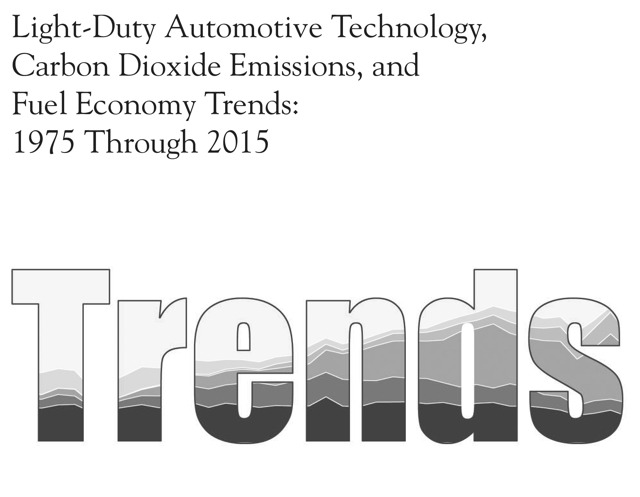Search the Community
Showing results for tags 'Fleet Wide Fuel Economy'.
-
The EPA released their annual report on the trends of emissions and fuel economy for light vehicles and the results are a bit mixed. The average fuel economy of new cars and trucks came to 24.3 mpg for 2014. This was the same fuel economy average for 2013, when the average increased by 0.6 mpg. 2014 was the first year since 2011 where fleet-wide fuel economy didn't increase. Why no increase? The EPA says growing demand for crossovers, SUVs, and trucks along with lower gas prices offset the fleet-wide efficiency gains. Christopher Grundler, director of the EPA’s Office of Transportation and Air Quality tells Automotive News that he's not worried about the slowdown in fleet-wide mpg improvements. “The whole policy was designed explicitly to preserve consumer choice. In 2014, the mix shifted a little bit, but overall we are exactly where we expected to be with greenhouse gas reductions,” said Grundler. There was some good news from the report. The average carbon dioxide emissions from new vehicles were 13 grams per mile lower than 2014 targets. Also, the average fuel economy for trucks climbed 0.6 mpg to 20.4. The EPA says that 0.6 mpg increase in the second-highest gain in 30 years. Source: Automotive News (Subscription Required), EPA View full article
- 5 replies
-
- Crossovers
- EPA
-
(and 6 more)
Tagged with:
-
The EPA released their annual report on the trends of emissions and fuel economy for light vehicles and the results are a bit mixed. The average fuel economy of new cars and trucks came to 24.3 mpg for 2014. This was the same fuel economy average for 2013, when the average increased by 0.6 mpg. 2014 was the first year since 2011 where fleet-wide fuel economy didn't increase. Why no increase? The EPA says growing demand for crossovers, SUVs, and trucks along with lower gas prices offset the fleet-wide efficiency gains. Christopher Grundler, director of the EPA’s Office of Transportation and Air Quality tells Automotive News that he's not worried about the slowdown in fleet-wide mpg improvements. “The whole policy was designed explicitly to preserve consumer choice. In 2014, the mix shifted a little bit, but overall we are exactly where we expected to be with greenhouse gas reductions,” said Grundler. There was some good news from the report. The average carbon dioxide emissions from new vehicles were 13 grams per mile lower than 2014 targets. Also, the average fuel economy for trucks climbed 0.6 mpg to 20.4. The EPA says that 0.6 mpg increase in the second-highest gain in 30 years. Source: Automotive News (Subscription Required), EPA
- 5 comments
-
- Crossovers
- EPA
-
(and 6 more)
Tagged with:


